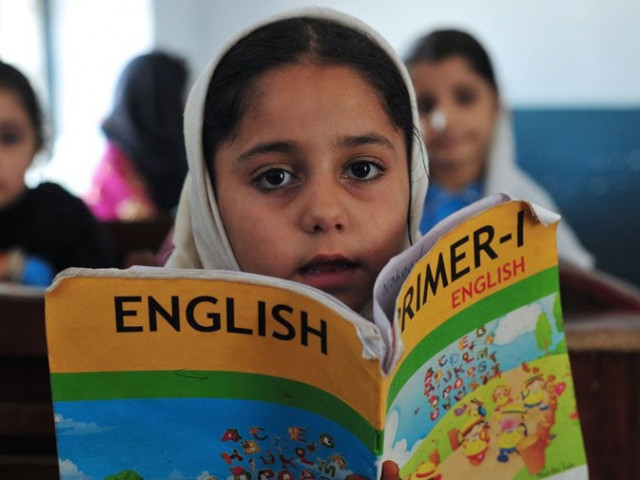Management failure: Sindh schoolbook supply stumbles
Month before session starts, no textbooks printed; process usually takes up to four months

Month before session starts, no textbooks printed; process usually takes up to four months. PHOTO: FILE
The new academic session begins on July 1. Even older books for millions of students in private schools which are sold in the open market and books for grades one through twelve, published by the Sindh textbook boards in all Sindh cities, are in short supply. Local book markets have limited supplies remaining, if at all, and problems will be inevitable if new books are not made available in a matter of weeks.
As part of an Asian Development Bank-funded project, the Sindh government provides textbooks for free to all of the 4.2 million students in grades one through ten at government schools. The ADB covers the cost of the tender for printing of books.
Private school students, however, purchase their books.
According to the school education department sources, in previous years when the new academic session used to commence from April, the allocation of textbooks was completed four months earlier - in November - so that publishing would begin in time for the board to complete the allocation of books before the end of February - well before the session began.
Sindh Textbook Board Secretary Hafeezullah Mahar admitted to The Express Tribune that the publishing process had been delayed, explaining that publishers, after the first allocation, would try to avoid royalty fees by publishing the books by themselves and selling them in the market, due to which the board was incurring losses.
“We asked the Punjab Textbook Board how they were dealing with this issue. They informed us that they were pasting stickers on their books,” Mahar said, adding that Sindh had also gotten stickers printed from Pakistan Printing Press and “now we are moving towards allocation and publishers will only get enough stickers for the number of books they have been allocated.”
He said that if any publisher wants to publish the books again, they will have to get the stickers from the board, which in turn will not be deprived of royalties.
It should be noted that the Sindh Textbook Board collects 13 per cent royalty on books provided to the market.
On the other hand, textbook board and publishing sources informed The Express Tribune that it will not be possible to fulfil the order by July 1.
Sources explained that publishers are first registered, after which on the basis of performance and capacity, books allocations are given to them, and the publishers themselves distribute these books in the market.
The process from allocation to publishing takes up to 120 days in which most of the work is pre-press - publishers being provided vetted copies of books - after which the printed order is issued.
Parents accuse private schools of forced books, stationery purchases
The Sindh Textbook Board decides the price of the books and collects its royalties, while the publishers buy the paper by themselves. Then, proofs are made and the publishing process starts, which then moves to binding, and then final supply to the market.
It should be noted that no major changes are being made in the curriculum for academic session 2019-2020. Some changes were made in books for grades one through eight last year while only the ninth grade Urdu book saw a few changes earlier this year. Changes planned for other subjects, especially at the high school level, remain pending.
All books, except those for specific languages, must be published in all three teaching languages - Urdu, English and Sindhi.
Published in The Express Tribune, May 26th, 2019.



















COMMENTS
Comments are moderated and generally will be posted if they are on-topic and not abusive.
For more information, please see our Comments FAQ